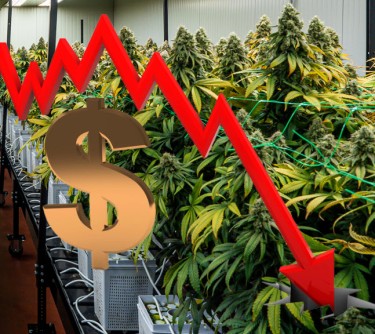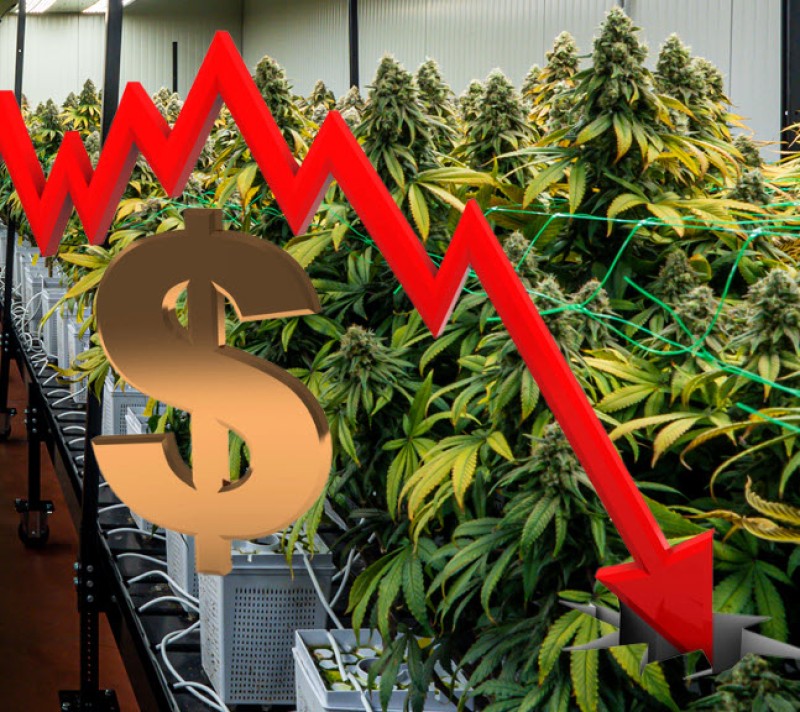
In a significant development for Michigan's cannabis industry, retail prices have fallen below $80 per ounce as of September 4, 2024. This historic milestone, reflecting a nearly 14.5% decline from the previous year, signals a major shift in market dynamics.
The price drop is driven by increased competition among licensed dispensaries, a growing supply of cannabis products, and the maturation of the market since the legalization of recreational use in 2018. More dispensaries and cultivation facilities have led to competitive pricing and greater product availability, making cannabis more affordable for consumers and potentially boosting legal sales.
As a leader in the Midwest's cannabis landscape, Michigan's regulatory framework supports both medical and recreational markets, generating significant tax revenue and job opportunities. As the industry evolves, stakeholders must navigate challenges and capitalize on emerging opportunities.
Factors Behind the Price Drop
-
Increased Competition
The surge in the number of licensed dispensaries in Michigan since the legalization of recreational cannabis in 2018, coupled with the expansion of cultivation facilities, has led to a significant increase in the supply and availability of cannabis products. With more dispensaries offering a wider variety of choices for consumers, the market has become increasingly competitive, with retailers employing pricing strategies to attract customers. This growth in the number of dispensaries and cultivation facilities has enabled dispensaries to offer lower prices to consumers, making cannabis more accessible and affordable.
-
Market Maturity
As the cannabis market matures, both producers and retailers have optimized their operations, leading to reduced costs that are often passed on to consumers. Enhanced cultivation techniques and economies of scale have played a crucial role in lowering production expenses, allowing businesses to improve efficiency and increase output. This combination of operational optimization and cost reduction not only benefits producers and retailers but also makes cannabis products more affordable and accessible for consumers, fostering a healthier and more competitive market environment.
-
Oversupply of Cannabis Product
The market has become oversaturated with cannabis products, particularly following significant outdoor harvests. This oversupply has led to a decrease in prices as producers and retailers compete to sell excess inventory.
-
Lack of Licensing Caps
Michigan currently has no statewide cap on the number of cannabis business licenses, resulting in explosive growth in both supply and demand. This unrestricted licensing has intensified competition among businesses, driving prices downward as they vie for market share.
Implications for Consumers and the Industry
-
Increased Accessibility
The recent drop in cannabis prices has made the product more affordable for a broader segment of the population, enabling consumers to access quality cannabis without financial strain. This increased affordability not only allows more individuals to enjoy legal cannabis but also promotes responsible use and consumption, as people are more likely to make informed choices when quality products are within reach. By removing financial barriers, the industry is fostering a healthier relationship with cannabis among consumers, contributing to a more informed and responsible market.
-
Potential boost in sales
The potential boost in sales volume is another significant implication of the lower cannabis prices in Michigan. As the cost of cannabis becomes more affordable, more consumers are likely to enter the market, leading to an increase in overall sales. Dispensaries may experience higher foot traffic as a result of this increased interest in cannabis products, directly benefiting from the lower prices. This influx of new consumers and higher sales volume could further solidify the industry's growth and sustainability in the state, as businesses capitalize on the greater demand for their products.
-
Impact on the Black Market
The competitive pricing of legal cannabis products in Michigan has the potential to curb illegal sales by making regulated options more attractive to consumers. As the cost of legal cannabis becomes more affordable and accessible, individuals may be more inclined to purchase from licensed dispensaries rather than the black market. This shift towards regulated products not only supports the legal industry but also enhances public safety and quality assurance. By choosing legal cannabis, consumers can be confident in the safety, purity, and potency of the products they purchase, reducing the risks associated with unregulated, illicit markets. As more consumers opt for legal cannabis due to the competitive pricing, the state can expect to see a decline in illegal sales and an improvement in overall public health and safety.
Michigan’s Cannabis Landscape
Since the legalization of recreational cannabis in Michigan, the state has become a pioneer in cannabis reform within the Midwest. With a comprehensive regulatory framework in place, Michigan supports both medical and recreational markets, fostering a thriving industry that has generated significant tax revenue and job opportunities.
-
Economic Contributions
The cannabis industry in Michigan has significantly contributed millions in tax revenue, which is allocated to vital areas such as education, infrastructure, and public health initiatives. Additionally, the industry's growth has led to job creation across cultivation, distribution, and retail sectors, providing numerous employment opportunities for residents. This dual impact not only supports the state's economy but also enhances community well-being through improved public services and increased job availability.-
-
Consumer Education
As cannabis prices continue to decrease in Michigan, making the products more accessible to a wider consumer base, there is a growing need for comprehensive consumer education. Dispensaries are increasingly taking on the responsibility of educating their customers on responsible use, product selection, and the effects of various cannabis strains. By offering workshops and informational resources, dispensaries aim to help consumers make informed choices and develop a deeper understanding of the products they consume. This proactive approach to consumer education not only promotes responsible use but also fosters a more informed and engaged cannabis community in the state.
Conclusion
The decline in cannabis prices to below $80 per ounce is a significant development for Michigan, highlighting the success of Its regulatory framework and the positive impact on consumers. As the market matures, stakeholders will need to remain vigilant in addressing challenges while capitalizing on the opportunities presented by this dynamic industry.
MICHIGAN CANNABIS PRICES PLUMMET, READ ON...
MICHIGAN CANNABIS FLOWER PRICES DROP BELOW $122, IS $80 NEXT?






